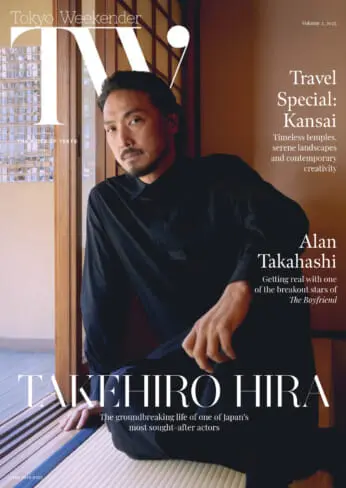What have volunteering and going on a date got in common?
by Alena Eckelmann
Hands On Tokyo (HOT), Tokyo’s first bilingual volunteer matching organisation, will soon hold their major annual event, the Day of Service, for the second time. On October 4, around 200 Japanese and foreign volunteers will lend a helping hand at four projects throughout the city. Last year’s inaugural Day Of Service was а huge success with 130 volunteers joining forces to make it a memorable day for all involved.
Established in January, 2007 by a small group of foreigners and Japanese nationals, HOT has grown to over 300 volunteers who are active in a number of ongoing projects. This is a massive achievement considering that volunteerism is still at a nascent stage in Japan. Marcela Campos, HOT’s executive director, proudly states; “We are growing steadily. More and more
volunteers and sponsors are coming on board enabling us to assist with a wider range of projects on a larger scale and ultimately to accelerate the growth of volunteerism in Japan.”
The Day Of Service is a one-day volunteering event packed with activities to help those in need. The event aims to raise awareness for volunteering in general and for HOT in particular. Interested people are given the opportunity to experience volunteering firsthand in well-coordinated projects and thereby have a chance to give something back to their communities. Above all, it will be a happy and fulfilling experience for both volunteers and recipients. “Volunteering should not feel like a burden but should be fun,” says Campos, “everyone should have a good time.”
Chese your day
There are four projects at this year’s Day Of Service; The Special Olympics Motor Development Skills is a sports festival for intellectually disabled children and their families. The children will have a chance to try out different sports at Yoyogi Stadium. At the Hakuju-sou Senior Home there will be a festival for the senior residents offering activities such as cross-stitching, nail painting, makeup sessions, playing games, and tea tasting. At the Wakaba-ryo Children’s Home, while the playground of the children’s home is being renovated, the youngsters aged three to fifteen years old, who cannot live with their parents, will be engaged in a great range of fun and festival-type activities. Liane Wakabayashi from Genesis Arts Lounge will volunteer her artistic skills at the festival. The Tokyo Welfare Association of the Blind will hold an international festival helping the blind to experience the world. There will be stalls representing different countries where the blind can listen to music, hear the language, smell spices, or eat foods from different countries around the world.
HOT’s role is that of a “matchmaker” between volunteers and project partners. All projects are pre-tested by HOT’s board members and then aspiring volunteers receive a 45-minute briefing before getting hands on. This way everyone knows exactly what to do and what to expect. Both volunteers and agencies will not have any awkward surprises but a rewarding experience in meaningful projects.
Breaking barriers
With HOT, there are no barriers, especialy not language barriers. “We are in Japan, hence it is only normal to involve as many Japanese volunteers as possible. As foreigners we are living here and want to give something back to our communities in Japan,” Campos explains. HOT’s bilingual coordinators are always present during the running of a project. They smooth operations, answer any questions, and foster communication between project members. As a result, everyone can fully contribute, discovering their potential do help others.
Volunteering with HOT does not usually require any special skills. “All one needs is some time and the desire to do something good for others,” explains Campos. “Many of the volunteers are working people and people with family. They give up their time whenever they can without having to volunteer every week, so it can be once a month or even once in several months, whatever suits best. The Day Of Service could be a starting point for an ongoing engagement with volteering.”
Children are ambassadors for volunteering. “Sometimes no special activities are needed to make someone happy,” says Campos, “children who come with their volunteering mums to the senior home, for example, spread happiness and laughter just by their being there.” By watching their mothers volunteering, they grasp the concept of helping others and doing good deeds at an early stage. This way, children will grow into volun-offering activities such teering. Parents who volunteer are very much encouraged to bring their children along to those projects suitable for young children.
It’s a date!
So, what do they have in common; volunteering and going on a date? If it was good, you come back for more, potentially leading to a lifelong relationship, right? Let HOT find the perfect match for you!
Rather than waiting for the Day Of Service, why not register now and participate in an ongoing project?
For more information or to register as a volunteer please see www.handsontokyo.com or call Yumiko Tategami or Marcela Campos at 03-5404-3563.









